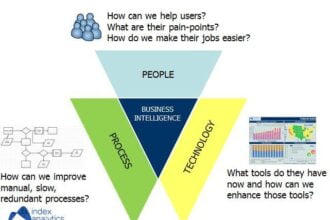Have you ever caught yourself thinking that no one understands you better than Netflix or YouTube? They just seem to get what you want and are always ready to deliver. The explanation for this impressive personalization lies in advanced data analytics mechanisms. The privacy concerns around big data are not empty words – BI does help business owners monetize your desires.
What Businesses Belong to the Entertainment Industry?
When one thinks of the entertainment industry, the things that come to mind first are movies, theaters, concert venues, and sporting events. However, this year’s entertainment looks different. The industry was hit hard by the lockdown. Movie theaters were closed for months. Concert venues still are. Land-based casinos suffered tremendous losses: even one of the gambling industry’s leaders, City of Dreams Manila, is reportedly struggling to survive the shutdown. The only players in the entertainment industry that are doing fine or at least alright are those that operate online, such as:
- Online streaming services
- Social media platforms
- Online casino operators
- Online game providers
- Platforms that post entertainment-related reading and video content.
How Does the Entertainment Industry Benefit from BI and Analytics?
Content Personalization
The number one task of the entertainment industry is to deliver personalized content to the customer. To ensure that no one cancels their subscription, Netflix uses machine learning-based recommender systems. Every user wants to see the content they find interesting and relevant; otherwise, they will not click, will be dissatisfied with the experience, and are unlikely to turn into a loyal customer. Efforts aimed at content personalization are evident throughout the entertainment industry. Think YouTube and Netflix recommendations, Facebook feed, Google’s suggested news articles – the list goes on and on. Thanks to big data analytics, providers know exactly what every individual user wants and offer them just that.
Optimized Scheduling
Video streaming services are not the only members of the entertainment industry that depend on BI. So do television channels, online blog owners, and social media influencers. Every online content creator knows that such a seemingly minor nuance as when the piece is posted affects how many people see it and how well it does. Scheduling is crucial for the entertainment industry, and data analytics helps determine when is the optimal moment for dropping new content. The same goes for television channels – hence so many cooking shows on weekend mornings.
Effective Ad Targeting
Before the emergence of AI, big data, and machine learning, targeted advertisement existed, but it was somewhat primitive. Legend has it that the reason why soap operas are called soap operas is that back in the first half of the twentieth century, soap companies sponsored radio dramas in exchange for having an ad platform. They were not being good Samaritans and cultural philanthropists. Instead, soap companies marketers’ knew that the main audience of these dramas were housewives, these companies’ most consistent customers. Today, ad targeting is way more advanced. Big data makes customer preferences visible, which, in turn, helps businesses to boost their return on marketing investment.
Predictive Behavior Modeling
Predictive behavior modeling refers to the use of data analytics to detect patterns and predict customers’ future actions. For example, if an online retailer relies on BI and keeps a good track of the customer’s activity, it will be clear what products this customer often buys together (say, protein powder and nutritional yeast at a sports nutrition store). When they try to buy protein without nutritional yeast next time, they should be offered yeast too because they are likely to buy it if reminded. Predictive behavior modeling is relevant in the entertainment industry as well. For example, if a gamer normally plays on Friday but skipped one, the online gaming platform should consider sending them an email and offer a bonus to prompt them to come back.








